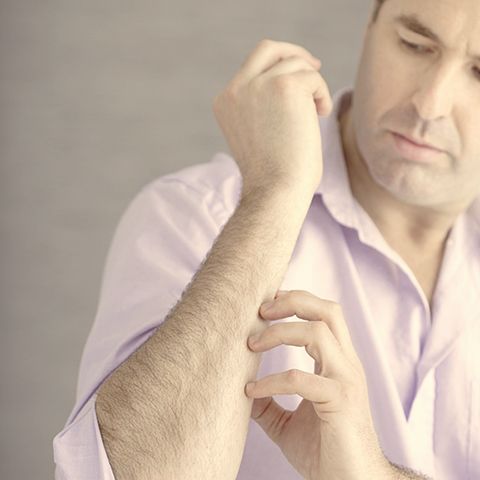What is psoriasis and the symptoms?
Psoriasis is a common, chronic, scaly rash that affects people of all ages. There is a genetic predisposition to psoriasis, thus it tends to run in families. Psoriasis is also influenced by many environmental factors. It is not contagious and is not due to an allergy.
The most common ages for psoriasis to first appear are in the late teens and in the 50s. It affects men and women equally, although in children, girls are more commonly affected than boys.
Psoriasis is often so mild it is barely noticed by the affected person, but it can occasionally so severe that the patient must be admitted to hospital for treatment. It may or may not be itchy.






